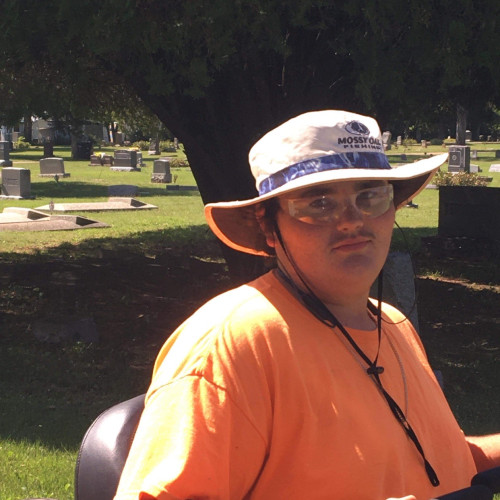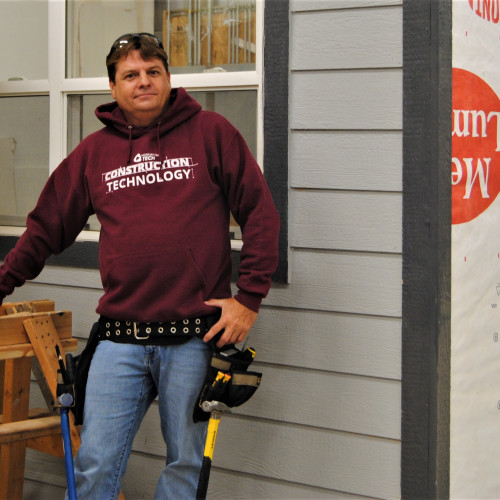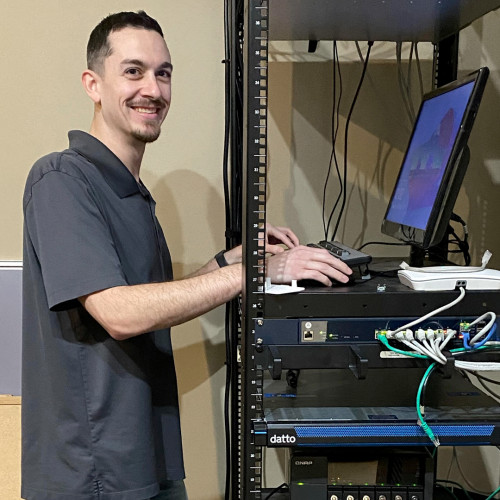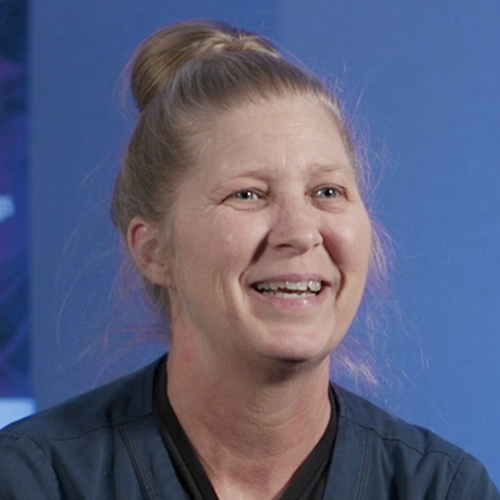
Brandy Sayre
Court Reporter
Growing up, I wanted to be a physician. After graduating from high school, I started working for a court reporting firm editing transcripts. I did that while I was in college, and I decided what I really wanted to do was to be a court reporter.
Court reporters are trained professionals who capture the words spoken by everyone involved in a court or deposition proceeding and prepare transcripts that become the official record. (A deposition is an oral statement or testimony taken under oath and recorded by a court reporter for later use in court or other legal filings.)
I found the work interesting because court reporters are constantly learning new things — especially during depositions. As a court reporter, one day, you’re taking a doctor’s deposition, then another day, it’s an aeronautical engineer’s deposition. And when you’re in court, it’s like you have a front-row seat for a Dateline episode!
Most court reporters are officials who work for the state, but others work independently or as part of a firm to take depositions at attorneys’ offices. To become a court reporter, you need to attend court reporting school. Programs are available online, and they take one to three years, depending on the type of technology you learn to use. Some court reporters use a steno machine — you’ve probably seen court reporters on television or in the movies using the machine — but others use voice writing, where they speak the verbatim record into a mask that translates their speech into text in real time. Both types of reporting use specialized equipment, and it takes training and practice to learn how to use it to produce a clean, impartial record. After you’ve completed your education, you are required to pass an exam to become certified. Certified court reporters must be able to transcribe a certain number of words per minute — the highest leg is 225 — with 95% accuracy and pass a written exam. Court reporters also must register with the state and uphold high ethical standards.
What I love most about being a court reporter is helping the community by playing an essential role in the administration of justice. Court reporters protect the record and provide a service to people who use the legal system. I also appreciate working in a field where everyone takes great pride in their work and genuinely cares about each other.
Kansas has a shortage of court reporters, especially in rural areas, and it’s a career with great earning potential. If you are interested in learning more, visit The Kansas Court Reporters Association website at www.KCRA.net. The site contains information about schools, job opportunities and more. We also award a scholarship every year. The National Court Reporters Association website also has great resources to explore; visit www.ncra.org. NCRA offers an A to Z program with a free 6-week online course to help people see if the profession is right for them.
Another way to learn more is to seek out a court reporter in your area or county. Ask if you can shadow them and see what goes on behind the scenes. Also be sure to do well in your English classes in high school. Taking the record and producing a transcript requires that you have good English and punctuation skills.




